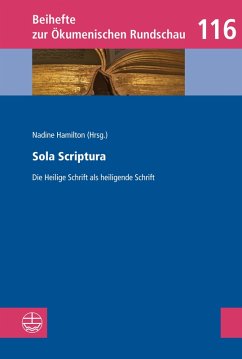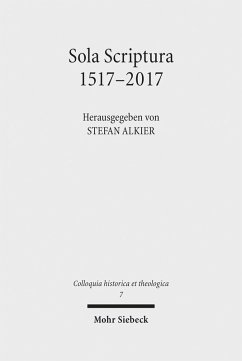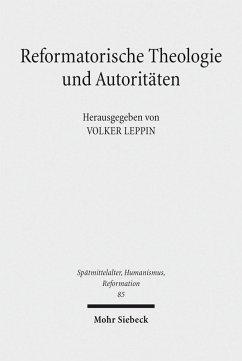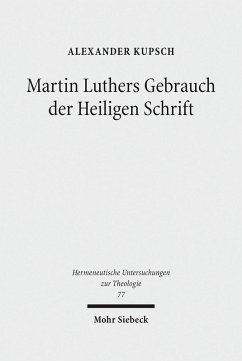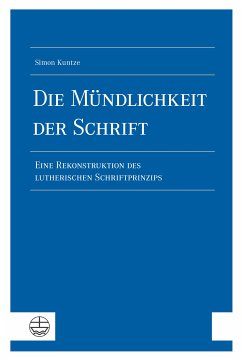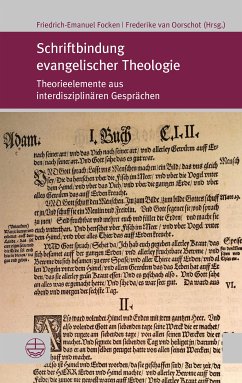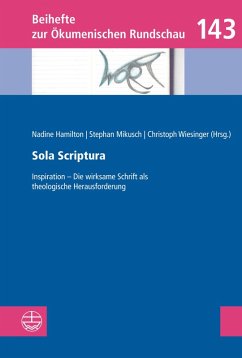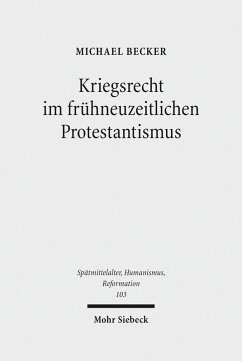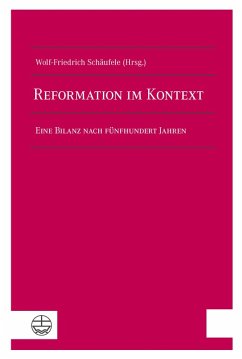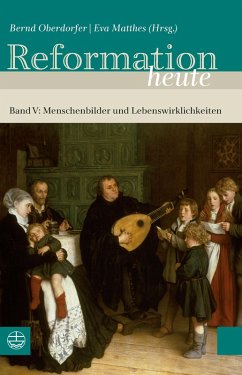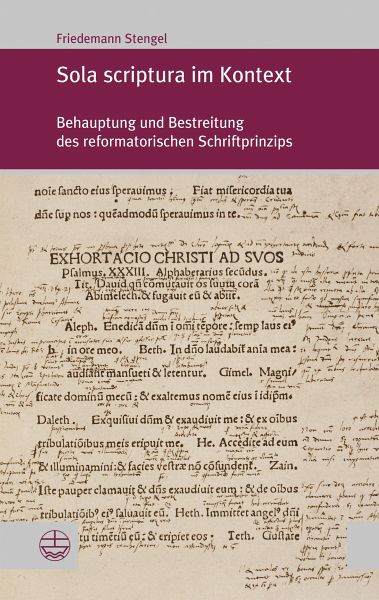
Sola scriptura im Kontext (eBook, PDF)
Behauptung und Bestreitung des reformatorischen Schriftprinzips
Sofort per Download lieferbar
Statt: 18,80 €**
16,99 €
inkl. MwSt. und vom Verlag festgesetzt.
**Preis der gedruckten Ausgabe (Broschiertes Buch)
Alle Infos zum eBook verschenken

PAYBACK Punkte
0 °P sammeln!
Am Schriftprinzip scheiden sich die Geister. Manche sehen in der Bibel eine Inkarnation des Wortes Gottes, einige bemühen sich um die Umdeutung des Schriftprinzips als Wegbereiter einer fortschrittlichen Geistesgeschichte, anderen gilt es vor allem als abgrenzendes Wesensmerkmal des Protestantismus gegenüber anderen Christentümern. Bei vielen hat sich die Rede von der Krise des Schriftprinzips als Selbstverständlichkeit eingebürgert; manche fordern ganz seine Abschaffung. Der vorliegende Beitrag geht von diesen disparaten Debatten zurück in das frühe 16. Jahrhundert, um den konkreten Po...
Am Schriftprinzip scheiden sich die Geister. Manche sehen in der Bibel eine Inkarnation des Wortes Gottes, einige bemühen sich um die Umdeutung des Schriftprinzips als Wegbereiter einer fortschrittlichen Geistesgeschichte, anderen gilt es vor allem als abgrenzendes Wesensmerkmal des Protestantismus gegenüber anderen Christentümern. Bei vielen hat sich die Rede von der Krise des Schriftprinzips als Selbstverständlichkeit eingebürgert; manche fordern ganz seine Abschaffung. Der vorliegende Beitrag geht von diesen disparaten Debatten zurück in das frühe 16. Jahrhundert, um den konkreten Positionen und historisch bedingten Grenzen auf die Spur zu kommen, zwischen denen das Argumentieren mit der Heiligen Schrift als alleinigem göttlichem Wort entwickelt worden ist. Der Blick in diese Entstehungszusammenhänge kann in den aktuellen Diskussionen zur Aufklärung beitragen. [Sola scriptura in context. Affirmation and Contestation of the Reformatory Scriptural Principle] The scriptural principle proves to be a divisive issue. Some see the Bible as the incarnation of the word of God, some try to interpret the scriptural principle as an agent of a progressive history of ideas, others consider it to be the differentiating concept of Protestantism as against other Christianities. Many talk about a crisis of the scriptural principle, some even call for its abolition. The present contribution looks back to the early 16th century for tracing the specific positions and historically conditioned limits which lead to the development of the reasoning according to which the Holy Scripture is the exclusive divine word. The look back to these contexts of origin will help clarifying the current debate.
Dieser Download kann aus rechtlichen Gründen nur mit Rechnungsadresse in A, B, BG, CY, CZ, D, DK, EW, E, FIN, F, GR, H, IRL, I, LT, L, LR, M, NL, PL, P, R, S, SLO, SK ausgeliefert werden.




